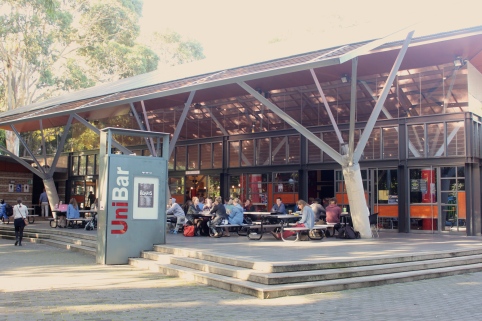Journalism students often wonder if there will be a job waiting for them after they have finished their degree. With the mainstream media shedding jobs, but universities increasing their number of journalism students, where will these fresh-faced journalists find work?
“At the moment, its journalism or nothing”, says Sally Krajacic who aspires to be a travel journalist. “Travel is something I love to do and making a profession out of it to document some of the beautiful places the world has to offer is my dream!”. As much as she would love to do travel journalism, she is very aware that there are limited jobs on offer, mostly because the majority of hosts are celebrities for example Jennifer Hawkins on Getaway, for rating reasons. Sally suggests that there are a lack of jobs in the journalism industry because “the definition of journalism is becoming a sort of thing anyone can do and I think jobs are going because access to online forms of media can damage a journalist getting stories” Although she does not have a back up plan if she misses out on doing travel journalism, she would take advertising into consideration.
“People will still write, and people will still evaluate, enjoy, criticise, commentate. Hopefully those that are the best will still be able to earn a good living, and won’t be swamped by the trashy bottom end storytellers”, says Brian Wilcock. Although Brian doesn’t think he will be a journalist, he wishes to write blogs and feature articles. “But when news and comment can be sourced cheaply or for free, why pay?”, Brian says when asked why he thinks there are a lack of jobs in journalism. “Backup plan? Maybe I’ll go on the pension when I finish this course!”, Brian isn’t worried about missing out on a job in the journalism industry, he also has worked as a travel agent, manager and trainer for 24 years so he has a field of endeavour to work from.
“My fears would probably be the money and lack of jobs… Im not sure how id get into it, or if ill be successful… I think because its such a niche industry”. Emily Bradwell aspires to be an online fashion journalist as she loves fashion and talking about it, giving different tips and ideas to the public. Although she does not know why there are a lack of jobs in the industry, she is worries that she will be unsuccessful and be without a job in her preferred field of expertise.
News Ltd, Fairfax and the ABC, which used to employ large numbers of students, now take very few. Peter Fray, a former editor at The Sydney Morning Herald and now a media lecturer at the University of Sydney, says although graduates with journalism skills are still in demand, they are more likely to work creating content for health funds or banks. Dylan Crismale believes the reason why there is a decrease in jobs is because “everything is moving online, its the digital age. Everything is online and because there is so much room for collaboration online you can work with a smaller number of Journalists”.





